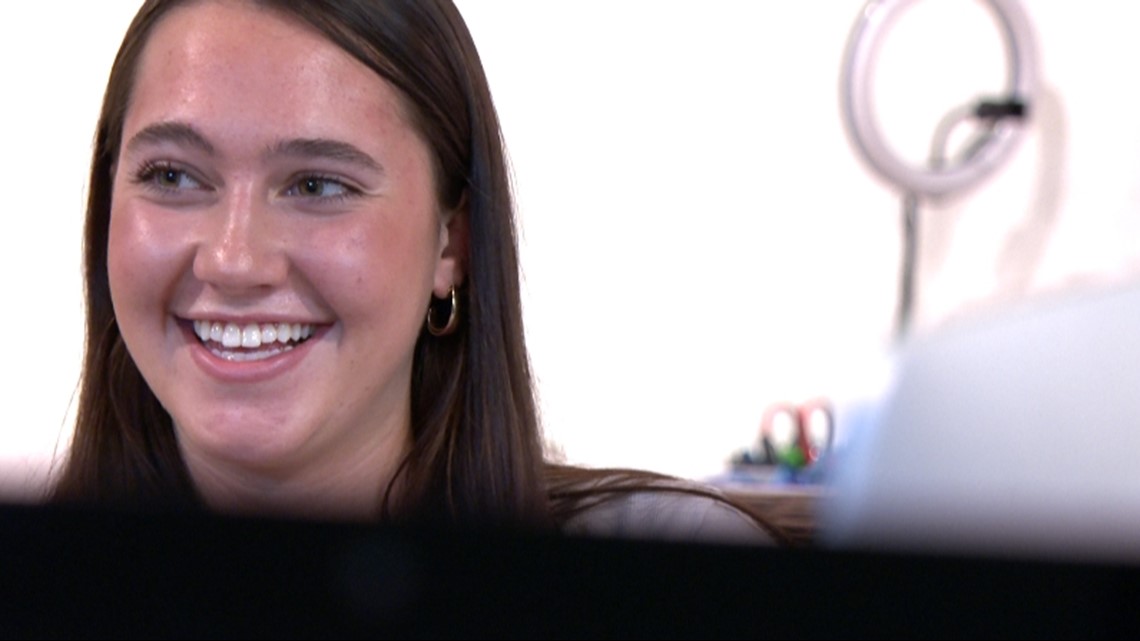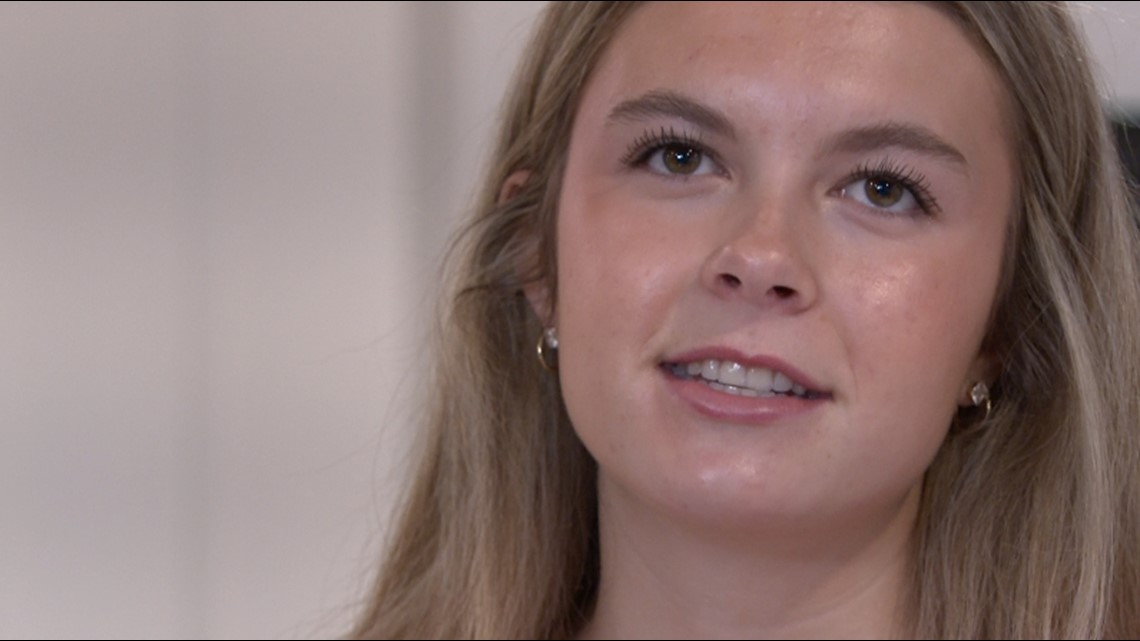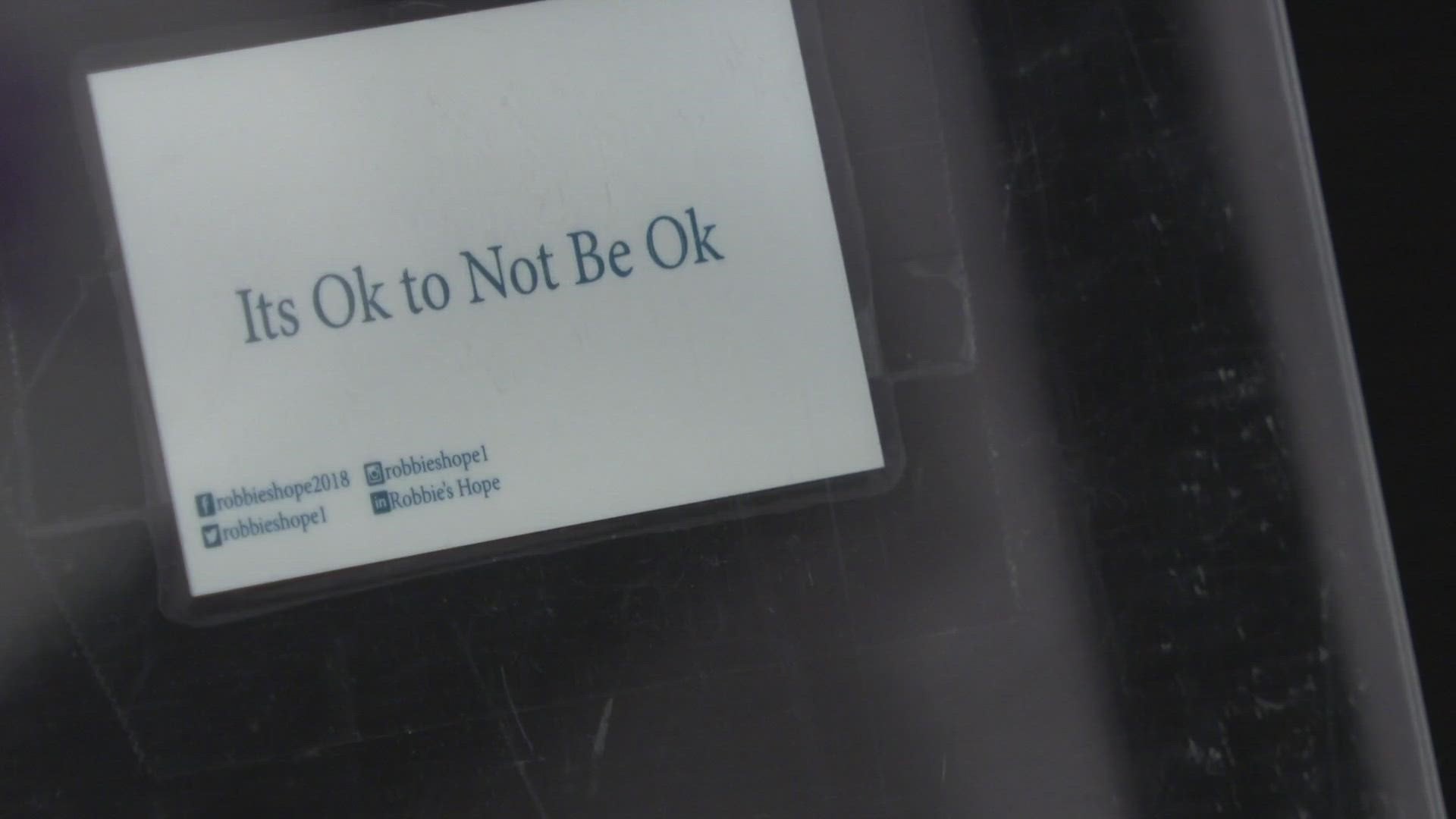LAKEWOOD, Colo. — A new report from the Centers for Disease Control and Prevention (CDC) shows that 57% of teenage girls in the U.S. felt "persistently sad or hopeless" in 2021. It's double that of boys.
Around 30% of girls admit that they've seriously considered taking their own lives. About 18% have experienced sexual violence in the past year, up 20% since 2017, when the CDC said it started monitoring this measure.
"We see so many of our friends and just people in our personal, close lives struggling... and it's just too many people," said Kennedy Kerr, senior at Lakewood High School.
Teenage girls are experiencing record high levels of violence, sadness, and suicide risk, according to the CDC.


"Personally, I do struggle with having a conversation when I'm feeling down," said Marin McKinney, also a senior at Lakewood High School. "I know that there’s a lot of teens out there that probably face the same issues."
To McKinney and Kerr, these statistics are painful to hear, but not surprising.
"I just try to be more aware of those around me and if I see something I say something and just check up on those and my friends," said McKinney.
Both of these high school seniors believe they can make a change, just by starting a conversation with their friends and encouraging them to reach out when they're struggling.
"Say, 'Hey, how are you doing today? I noticed something's off,' and 'If you want to talk about it, I'm always here,'" said McKinney.


Kerr said she wants her peers to know there should never be shame when asking for support.
"It is okay to not be okay and it is okay to reach out and ask for help," she said.
As a result of its new report data, the CDC said it's time to invest in schools as a "vital lifeline" to help struggling youth.
"Just like Children’s Hospital declared a mental health emergency in May 2021, it feels like our schools are about to do that with our young people," said Kari Eckert, executive director of Robbie's Hope, a local non-profit dedicated to teen suicide prevention. "We have not as taxpayers and as a state given our schools enough resources to handle the issue they are handling."
She said the new CDC data is alarming.
"Particularly as a mom who has lost a child to suicide, we should be scared. We should be reaching out to our children on a regular basis," said Eckert.
Her son, Robbie, took his own life in 2018.
"We need to teach our kids much earlier that it's okay to have human emotions, to not let things progress to such a deep level," said Eckert.
She said parents cannot wait until their children are feeling persistently depressed or hopeless before reaching out to them.


"I think with Robbie's Hope we have learned [that] kids are willing to have these conversations. Often times, it's the adults that are fearful of them," said Eckert. "We want adults to learn that they need to check in with the youth in their life, they need to ask them if they’re really ok."
Eckert said if adults need help with starting these conversations with kids, they can download their free adult handbook, which is a guide by teens on how to talk to teens about mental health concerns.
"I wish I would’ve had it as a parent," said Eckert. "I wish I would’ve had the education to know how to tackle talking with Robbie about how he felt."
Eckert's favorite acronym for "HOPE" is "hold on, pain ends." She believes that together with kids and teens, these awful statistics can be turned around.
"I wouldn’t be doing this work if I didn’t believe we could make a change," said Eckert. "And the reason I think we can make a change is because we’re encouraging kids to start talking."
Eckert said they are also helping to support legislation in Colorado that would help teachers assess their students' mental health in the hopes of connecting struggling teens to resources.
Robbie's Hope has a series of handbooks written by teens for adults to help parents talk to their kids about anxiety, depression and suicide. They also do outreach and have student ambassadors, like McKinney, who can offer support to peers in school.
You can download the handbook for free on their website.
Resources for teens:
- National Suicide Prevention Hotline (call 988)
Check out more resources on the Robbie's Hope website.
SUGGESTED VIDEOS: Mental Health & Wellness

